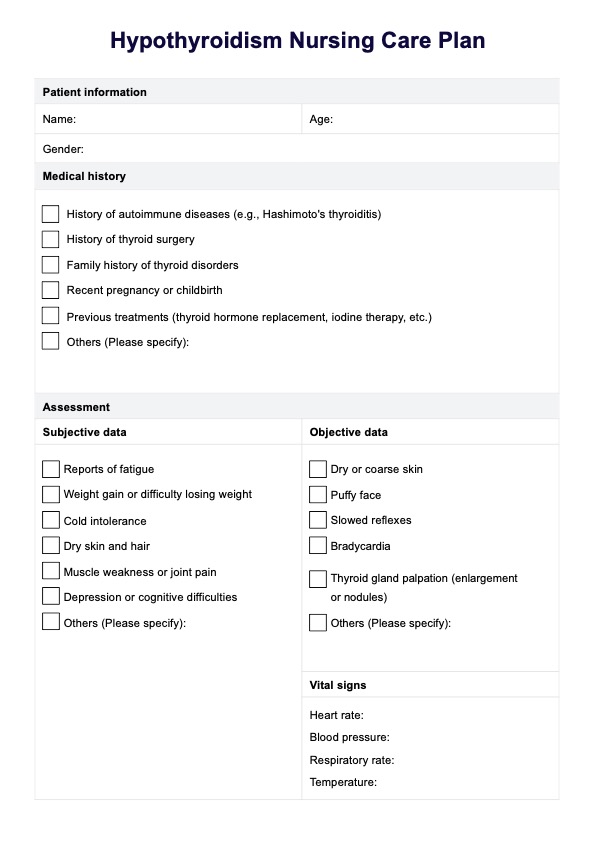Common assessment findings in hypothyroidism include unexplained weight gain, persistent fatigue, cold intolerance, dry skin, and slowed heart rate. These symptoms often develop gradually and can vary in severity depending on individual hormone levels.












